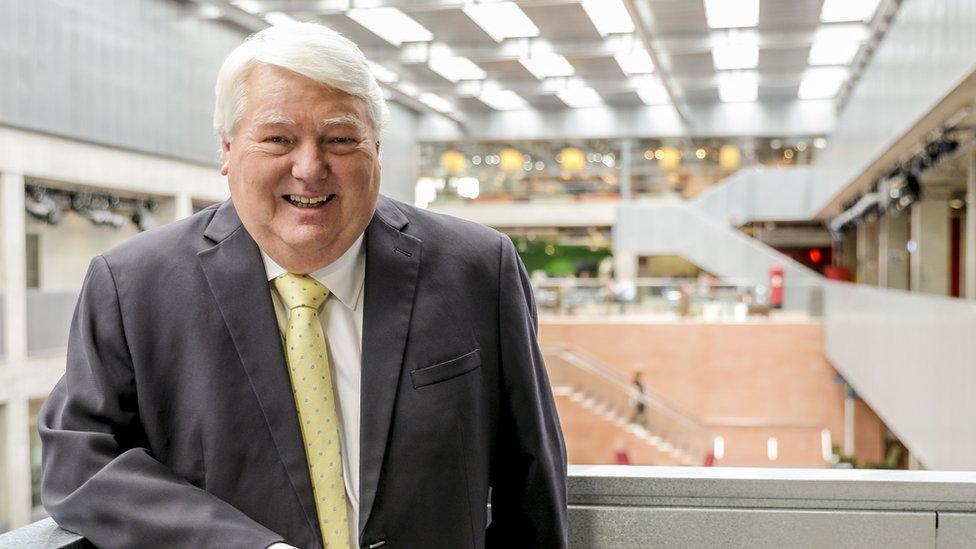BBC Scotland: Director Steve Carson says public view 'a challenge'
- Published
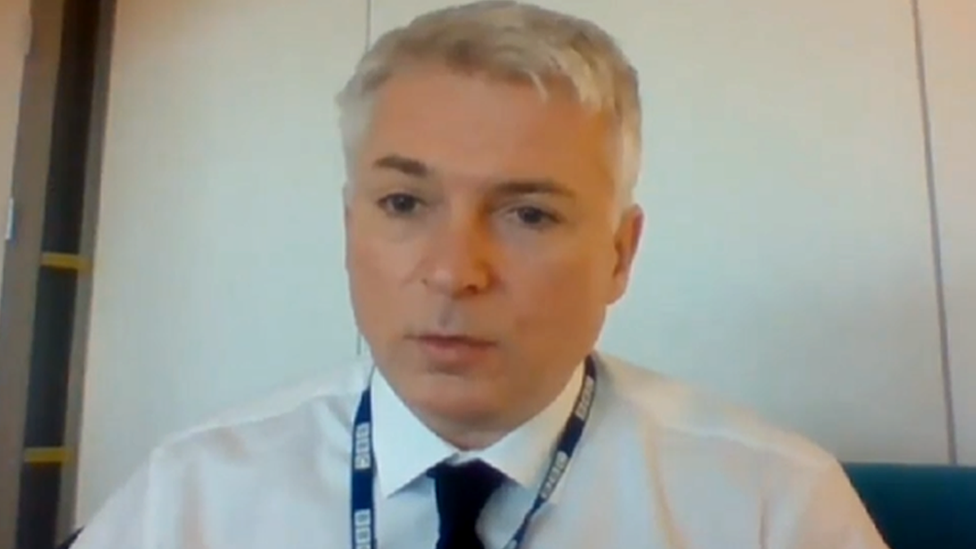
Steve Carson gave evidence at a virtual sitting of the committee
BBC Scotland's new director Steve Carson has told MSPs at Holyrood that audience perception of the corporation is a "challenge".
At Holyrood's Culture, Tourism, Europe and External Affairs Committee, he also said he "regrets" any confusion over coverage of the first minister's coronavirus briefings.
Mr Carson said the broadcaster never intended to cease coverage.
But some members of the BBC audience had been left "confused".
Liberal Democrat MSP Beatrice Wishart asked the director about differing perceptions of the BBC in Scotland compared with the rest of the UK.
An Ofcom report had previously found that 64% of people in Scotland felt the BBC was "effective at informing, educating and entertaining people", compared with 71% in England.
Via a video link with committee members, Mr Carson said approval of the corporation in Scotland was catching up with elsewhere.
He said: "Over the past five years, the gap between the overall approval of the BBC in Scotland and the BBC across the UK has narrowed. A few years ago, on a 10-point scale, (there was) point-7 of a difference.
"Our most recent figure is point-3 and, towards the end of last year, it went down to point-2."
He added: "It's not to downplay perceptions of the BBC in Scotland are different. That is a challenge and we respond to that by doing good work."
Daily briefing
Mr Carson, who has taken over from Donalda MacKinnon, was asked about BBC coverage of the first minister's daily coronavirus briefings.
He said the broadcaster never intended to cease broadcasting the briefings, but some members of the audience had nevertheless formed that impression.
In September, the BBC indicated it would shift to providing televised coverage of the briefings based on "editorial merit", while continuing to stream them online.
In response to a question from MSP Annabelle Ewing, he said: "I do regret, and I agree, that for a period of days people were incredibly confused as to what they thought the BBC were doing."
He said the BBC had a legal obligation to due impartiality and the original decision intended to make clear that coverage of the briefings was not as a result of any "directive".
The MSPs were also told about the challenges for the BBC of the Covid pandemic.
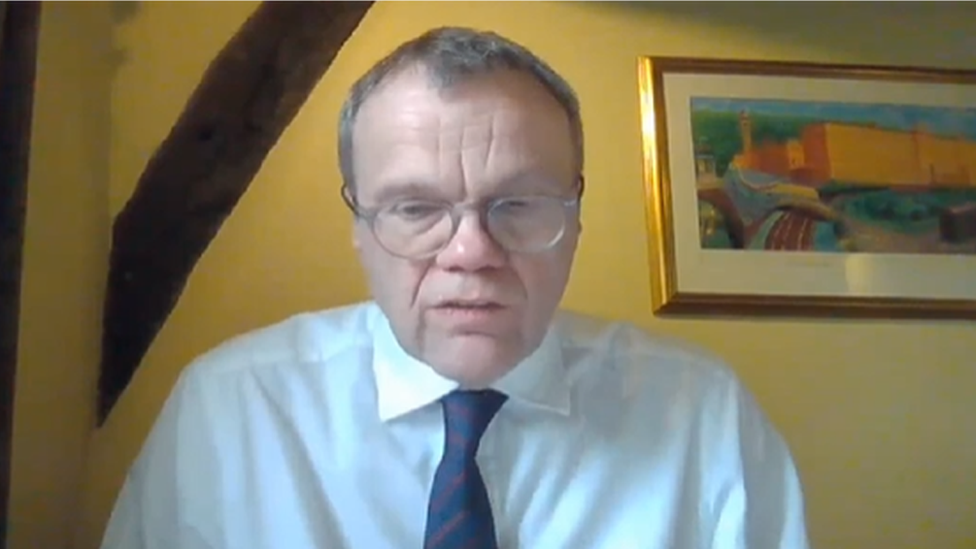
Glyn Isherwood said Covid would cost the BBC £125m over the next year
BBC chief financial officer Glyn Isherwood said: "Some of our larger productions have had to pause during that time. That had implications for us and many of our sporting events have been paused until the next financial year."
He added that coping with the virus would cost the BBC as a whole £125m over the next year.
Asked about the voluntary redundancy process the corporation began earlier this year, Mr Carson said about 77 staff were leaving BBC Scotland.
Cultural figures
Committee convener Joan McAlpine said the BBC was losing "irreplaceable" cultural figures, mentioning journalists Brian Taylor, Gordon Brewer and Isobel Fraser, and asked what was being done to nurture their successors.
Mr Carson paid tribute to the "very experienced, very distinguished and talented journalists" who were leaving the BBC.
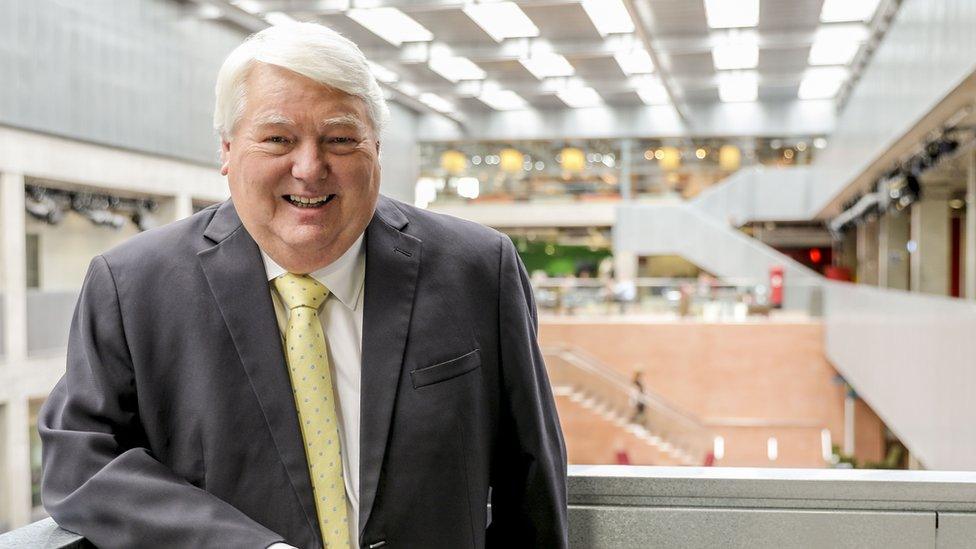
Brian Taylor is retiring after 30 years as political editor
But he said there had been significant investment in journalism in recent years, mentioning journalists Martin Geissler, Rebecca Curran, Laura Miller, Laura Goodwin and James Cook.
Questioned about the BBC's gender pay gap, Mr Carson said substantial progress had been made.
There were 74 equal pay cases raised in Scotland, but there are now none outstanding.
The gender pay gap in BBC Scotland is about 5%, he said, and about 6.3% for the BBC as a whole.
- Published23 June 2020
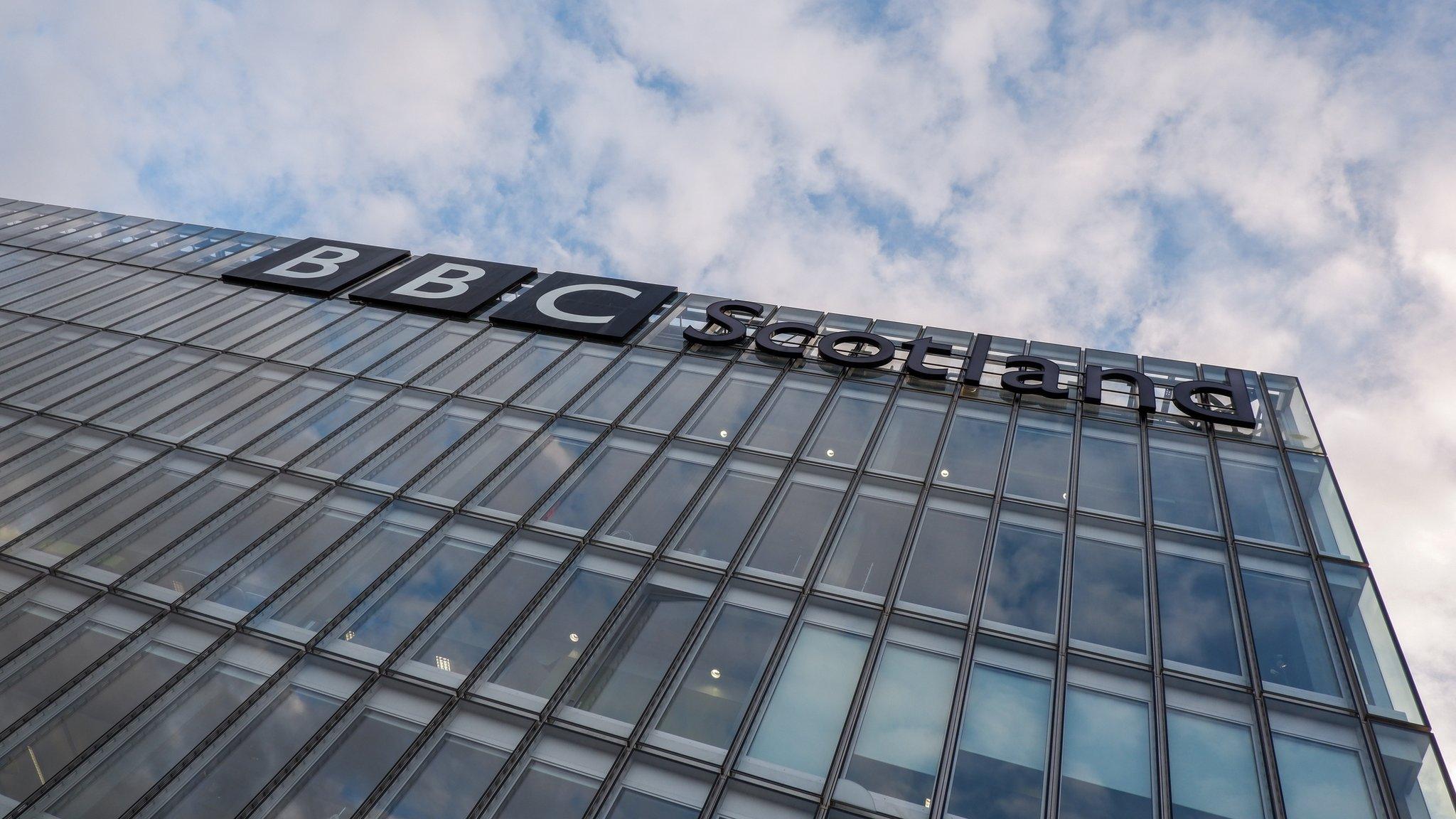
- Published29 April 2020
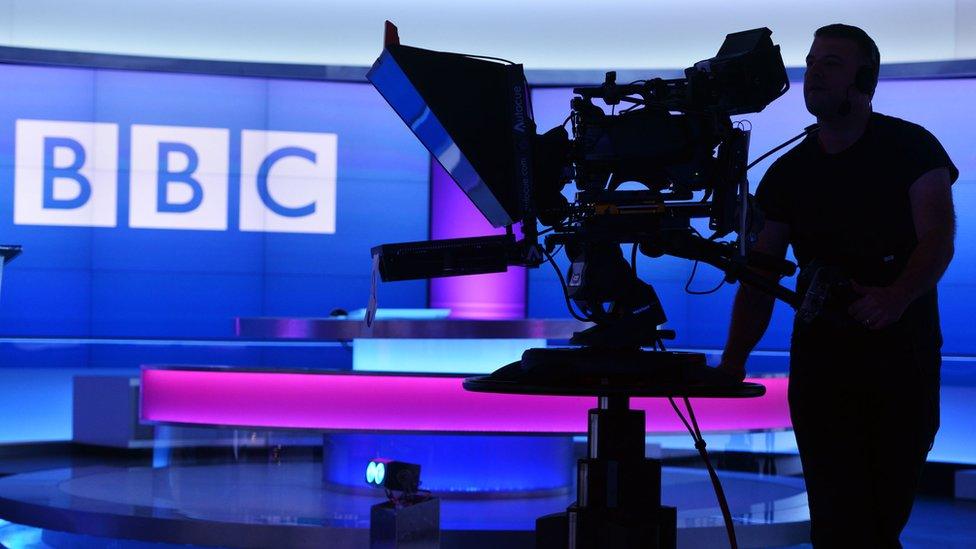
- Published10 September 2020
